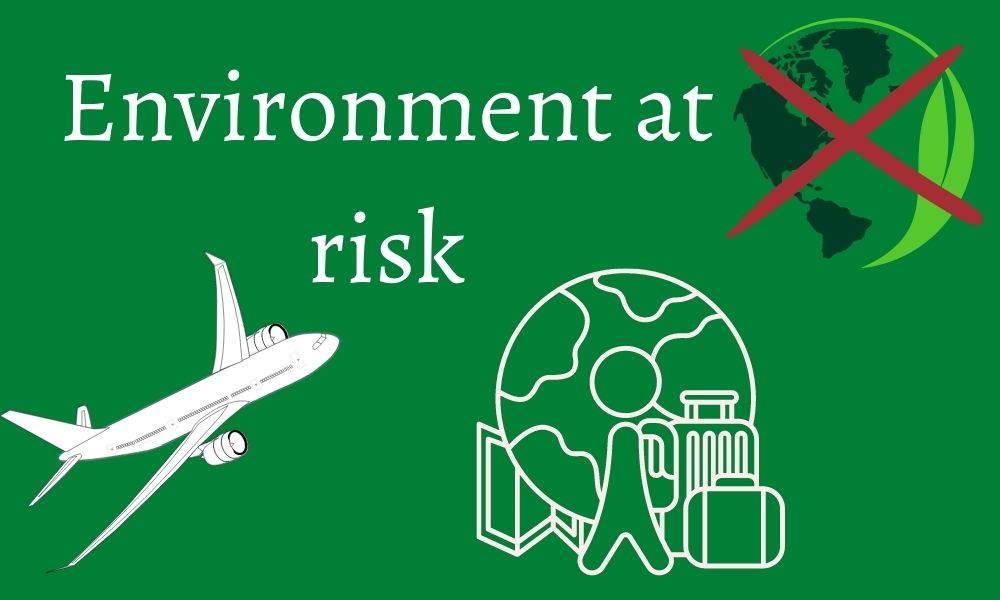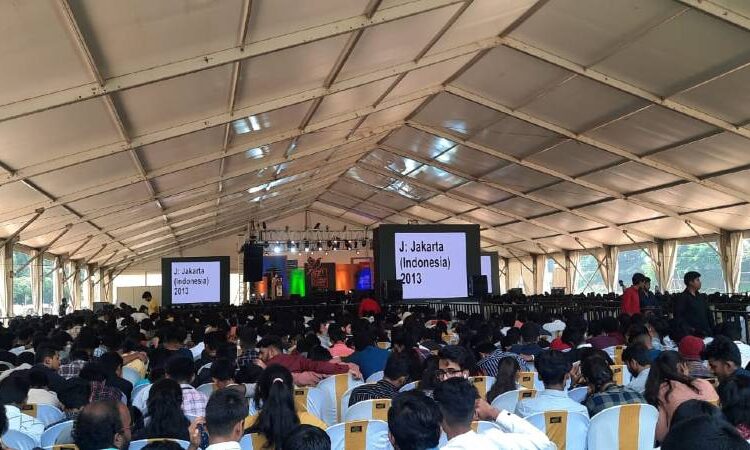Travelling and the means for travel are becoming the new concerns for citizens due to its affect on environment.
Travel and tourism being a major factor for climate change was the focal point of discussion at the Literature Fest in Alliance University. Tom Doig, an investigative journalist from New Zealand raised his concerns over the depleting climatic condition due to travel at the event, named Cities I Used to Visit.
Tom Doig at Asia Pacific Literature Festival
Tourism is a big industry as The Economic Impact Report of 2021shows that it commands 10.3 percent of the world economy; 73.7 million jobs worldwide,10.6 percent of the total world employment. The travel and tourism sector in India provided employment to nearly 80 million populations in 2020. It contributed five percent of India’s Gross Domestic Product (GDP) creating 15.3 percent of jobs shows data in statista.
But simultaneously, tourism contributes five percent of the global carbon dioxide emissions; 75 percent because of transport, 40 percent because of aviation according to the transport-related carbon emissions of the tourism sector report of 2019.
Tom Doig while talking about the cities he visited in the Asia Pacific Literary Festival said he observed increased humidity in the weather, increased crowd, excess traffic, and the loss of animal habitat and natural resources.
The United Nation’s World Tourism Organisation (UNWTO) and ITF research, released in December 2019 at United Nations Framework Convention on Climate Change (UNFCCC) COP25 shows carbon dioxide (CO2) emissions from tourism are forecasted to increase by 25 percent by 2030 from 2016.
Natasha, a medical writer said, “People usually choose remote places to travel and to explore. They don’t go for a big city to go for a holiday. And such places require a lot of travel modes.” She also said, ” All the natural resources and fossil are depleting for fuels and oils.”
Abida, an information technology (IT) professional said, ” A decade or two ago, places were less crowded and there was less pollution. But now, places have turned into tourist spots thus attracting lot of people who don’t care about the place they visit. They pollute it, exploit it for their enjoyment, and leave. ”
The COVID-19 pandemic has led to a seven percent reduction of greenhouse gas (GHG) emissions globally in 2020, providing a tangible reference to the magnitude of the effort still ahead in order to achieve the goals of the Paris Agreement, which will require around seven percent reduction of emissions on an annual basis throughout the next decade as mentioned in the Emissions Gap Report of 2019.
Mani, a BTech student said, “I don’t think tourism has anything to do with the climate change. Tourism is about exploring and experiencing new places, doesn’t mean that it is exploring the nature.”
Dr. Jyotish Kumar, a chemistry professor of Alliance University said, “We cannot blame travel and tourism for the climate change. It is not just tourists who are depleting the environment.”He further said, “It is the duty of every individual to take care of the environment no matter what city or country we are in. We should keep watch of how our habits are affecting the climate and try to change it.”
In India, 24 percent of the total respondents believe the government is the most responsible when it comes to making changes to help travel be more sustainable, followed by 22 percent who cite tourism authorities and 20 percent who said travellers themselves can bring in this change in the survey conducted by the Agoda Sustainable Travel Trends.
Dr. Kumar said that other countries have more strict measures regarding pollution and environment. “India should try to implement such measures.”








